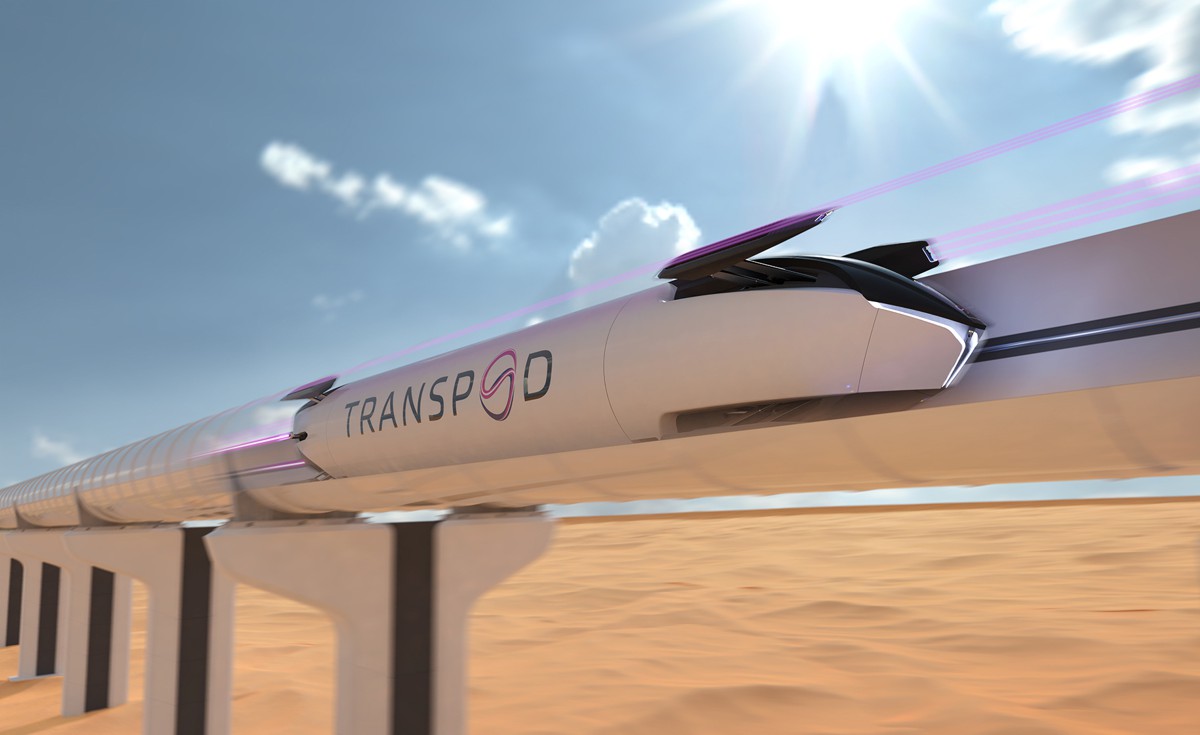TransPod FluxJet promises transportation at over 1,000 km per hour
TransPod, the start-up that is building the world’s leading ultra-high-speed ground transportation system (the TransPod Line) to disrupt and redefine passenger and cargo transportation, unveiled the FluxJet, an industry-defining innovation that transforms the way we live, work, and travel.
Based on groundbreaking innovations in propulsion and fossil-fuel-free clean energy systems, the FluxJet is a fully electric vehicle that is effectively a hybrid between an aircraft and a train. Featuring technological leaps in contactless power transmission and a new field of physics called veillance flux, the FluxJet travels in a protected guideway at over 1000 km/h – faster than a jet and three times as fast as a high-speed train.
The FluxJet will operate exclusively on the TransPod Line, a network system with stations in key locations and major cities, featuring high-frequency departures designed to enable fast, affordable, and safe travel. Most recently, TransPod confirmed $550M US finance and announced the next phase of an $18B US infrastructure project to build the TransPod Line to connect the cities of Calgary and Edmonton in Alberta, Canada. Preliminary construction work, including the environmental impact assessment, has begun.
This critical project will create up to 140,000 jobs and add $19.2B to the region’s GDP throughout construction. Once the TransPod Line is in operation, it will cost passengers approximately 44 per cent less than a plane ticket to travel the corridor and reduce CO2 emissions by 636,000 tonnes per year.
“All the hard work over the past few years has led to this milestone moment where talk is becoming a reality. The technology is proven, and we have the confidence of investors, governments, and partners to continue pushing forward to redefine transportation effectively,” said Sebastien Gendron, co-founder and CEO, TransPod.
At TransPod’s unveiling event in Toronto, a scaled-down FluxJet was featured in a live demonstration showing its flight capabilities. The almost 1-tonne FluxJet vehicle demonstrated a take-off, travel, and landing procedure within its guideway.
“This milestone is a major leap forward,” said Ryan Janzen, co-founder and CTO, TransPod. “The FluxJet is at a nexus of scientific research, industrial development, and massive infrastructure to address passengers’ needs and reduce our dependence on fossil-fuel-heavy jets and highways.”
“TransPod completely changes the game with ultra high-speed, zero-emission passenger travel and freight transportation between major gateway cities,” said Yung Wu, CEO of MaRS Discovery District. “It is time for bold action from our policymakers, investors, and operators to support the commercialization of made-in-Canada innovations like TransPod, to win in the multi-trillion dollar global innovation economy.”
“The FluxJet is a first for Canadian innovation and is the next great infrastructure project to be brought worldwide,” said Janzen. “The TransPod Line is being developed in collaboration with our partners in Europe, USA, and beyond, including universities, research centres, the aerospace industry, architecture, railway, and construction partners.”
TransPod’s FluxJet unveiling was made possible with the support and collaboration of the Building Trades of Alberta, Canada’s Building Trades Unions, Dassault Systèmes, DHL Express, MaRS, Ikos Consulting, REC Architecture, and SADE Engineering.





























